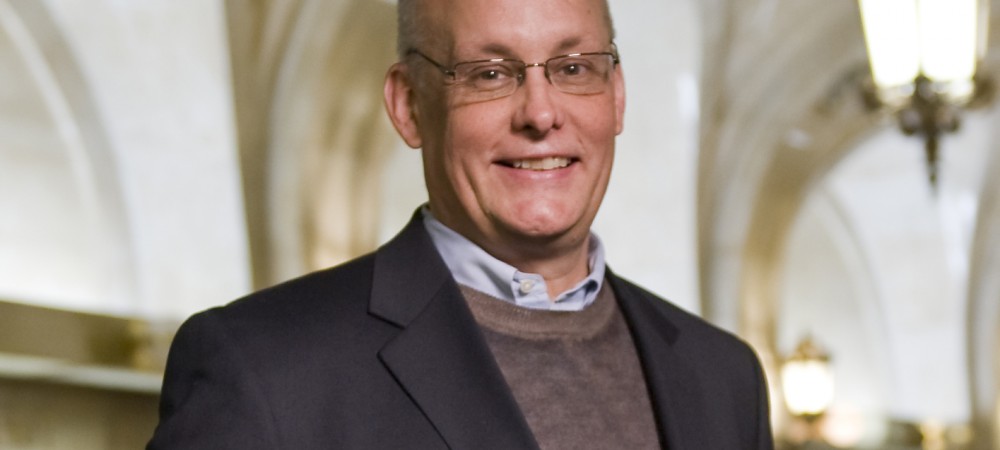
Mark Brown
Brown: Answers in case still elusive
Published Feb. 4, 2014
By MARK BROWN
Columnist
At 162 pages with 852 footnotes, “The Death of David Koschman: Report of the Special Prosecutor Dan K. Webb” is as exhausting as it is exhaustive.
A 17-month investigation. One hundred and forty-six witnesses. More than 22,000 documents totaling in excess of 300,000 pages.
Yet when I finished reading it, I couldn’t help thinking: Is that all there is?
That’s because despite all that effort, despite having the resources of one of the world’s best law firms and the power of a grand jury behind him, Webb’s team couldn’t really penetrate how the investigation into Koschman’s death came to be so badly mishandled by the Chicago Police Department.
The report establishes to an absolute certainty that the case was indeed botched from the start, that the police in particular didn’t do their jobs, or did them poorly.
But we’re left still not knowing whether that’s just the sorry state of affairs in a big bureaucracy like CPD or the unseen hand of corruption.
The result is unsatisfying, leaving us with nearly as many questions as when this started. More discouraging is the likelihood that the investigation is now played out. We’ve reached the end of the line as far as getting answers.
The Death of David Koschman – Report of the Special Prosecutor
Webb’s team couldn’t even resolve one of the more glaring inconsistencies turned up by its investigation: that Mayor Daley and others in the police chain of command quickly learned of the involvement of the mayor’s nephew Richard J. Vanecko in the incident that caused Koschman’s death, while investigators working the case claimed to be clueless for nearly three weeks.
That would seem to speak directly to the suspicions that have surrounded this case since Sun-Times’ reporters began peeling back the onion in 2011.
But the Webb report doesn’t explain the discrepancy.
When Vanecko pleaded guilty last week and accepted a plea agreement that included a 60-day jail sentence and an apology, I wrote that justice was served, even if it was 10 years late.
Unfortunately, those 10 years proved a more formidable obstacle for Lady Justice in the larger task assigned the special prosecutor by Judge Michael Toomin — to determine whether there had been intentional wrongdoing by police or prosecutors in their handling of the matter from the original 2004 probe to the 2011 “re-investigation” prompted by Sun-Times’ inquiries.
The Webb report concludes the statute of limitations ruled out bringing charges against anyone from 2004 and clears state’s attorney’s personnel of any wrongdoing in the 2011-2012 period.
It also concludes there wasn’t enough evidence “to prove beyond a reasonable doubt” that any police broke the law when the case received a second look based on the Sun-Times’ interest in 2011.
Frankly, though, that makes it sound like Webb’s team came closer to catching somebody than it really did.
Webb certainly raises reasonable suspicions about the actions of some police, especially in the case of departmental supervisors who helped rewrite a report on Koschman’s death by attributing a threatening quote to him that seems to have been invented for purposes of justifying their decision to clear Vanecko on the basis of self-defense.
But there’s nothing that would support a criminal charge.
Likewise, as Webb notes, it strains credulity that the missing case file just happened to turn up, but that doesn’t mean he could pin a charge on the guy who claims to have found it.
Depending on your world view, you come away from this believing that either the police were just screwups or that Webb simply was unable to pierce the Blue Wall.
A press release accompanying the report went out of its way to absolve the Daleys.
“…The special prosecutor has concluded there was no evidence that former Mayor Daley, his family or others at their direction engaged in conduct to influence or attempted to influence, the investigations which [Chicago Police Department] or [Cook County state’s attorney office] conducted in connection with the Koschman matter.”
Curiously, the report itself contains no such language, so I assume somebody must have thought they owed that much to the Daleys after putting them through this exercise.
But indeed, lest anyone accuse us of sour grapes, there is absolutely no evidence in the report that the Daley family tried to put in a fix.
Flint Taylor, one of the lawyers who sought the appointment of a special prosecutor, offered an explanation for that.
“Destroyed files, evidence that was not documented, interviews not done — in the city of Chicago, you don’t need a phone call,” Taylor told reporters after the report was released.
True, in the highly politicized CPD, you wouldn’t need a phone call, but somewhere along the way somebody would have had to give an order. And Webb was our last best chance of finding out.


